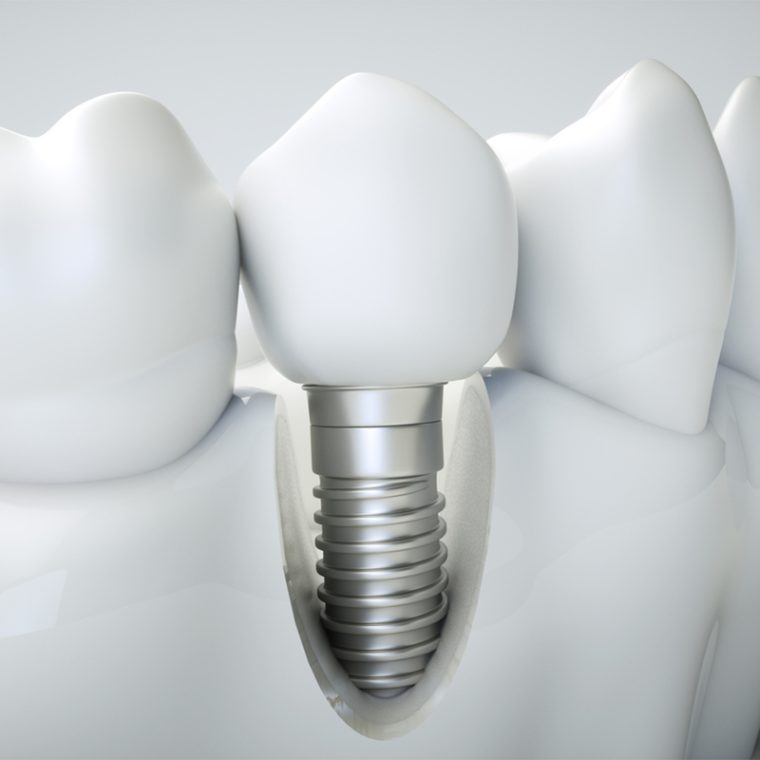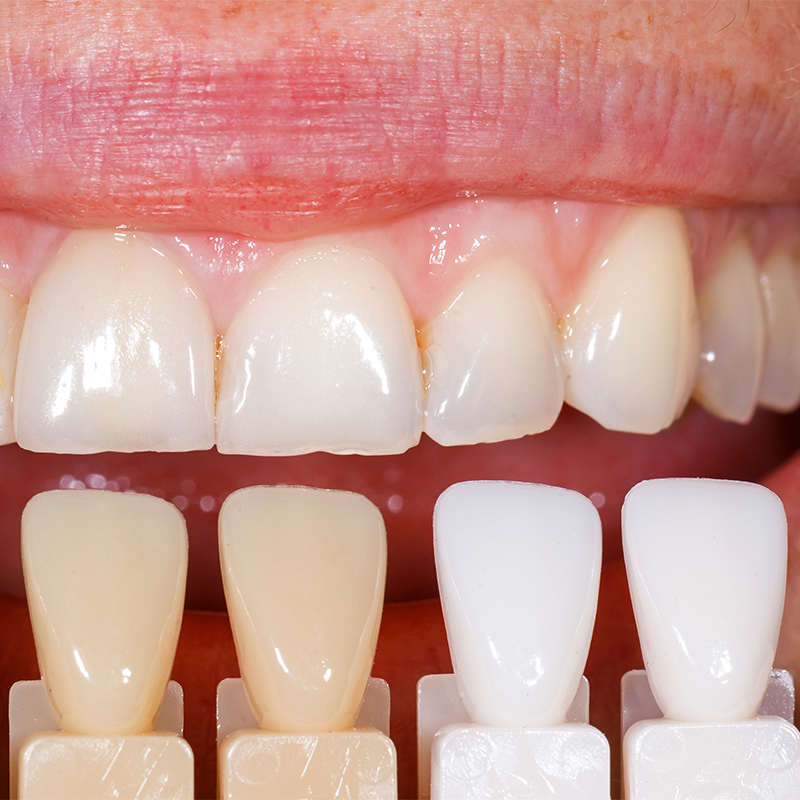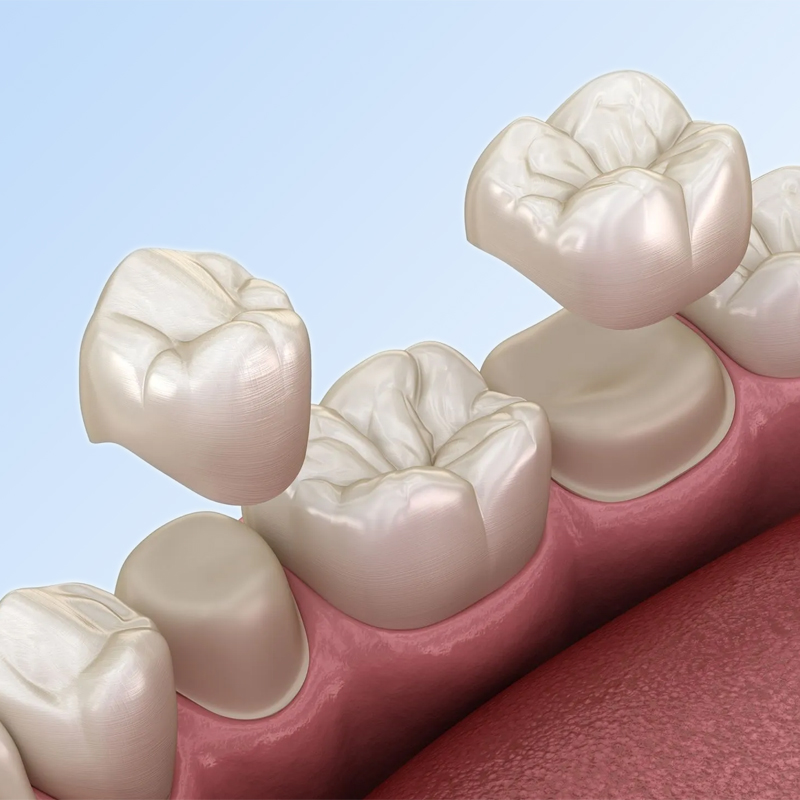Missing teeth can impact not only aesthetics but also oral health and overall quality of life. Fortunately, modern dentistry offers a permanent and natural solution to this issue: dental implants. But what are dental implants, who are they suitable for, and how are they applied? Here are all the details!
What is a Dental Implant?
A dental implant is an artificial root system, typically made of titanium, that is placed in the jawbone to replace missing teeth. The prosthetic tooth attached to the implant provides both the aesthetic and functional benefits of a natural tooth. Dental implants restore chewing functionality and offer a permanent solution without damaging adjacent teeth.
Components of a Dental Implant
- Implant Screw: The metal structure placed in the jawbone that mimics the tooth root.
- Abutment: The connecting piece between the implant and the prosthetic tooth.
- Prosthetic Tooth: The artificial tooth (crown) placed on the implant.
Benefits of Dental Implants
- Natural Appearance and Comfort
Dental implants provide the most natural aesthetics. Since they are fixed in place, they eliminate issues like slipping while eating or talking.
- Long-Lasting Solution
With proper care, dental implants can last a lifetime, making them a durable alternative to other treatments.
- Prevents Bone Loss
After tooth loss, the jawbone gradually begins to deteriorate. Implants integrate with the bone, stopping this loss and strengthening it.
- Preserves Adjacent Teeth
Unlike bridge treatments that require the reshaping of adjacent teeth, implants do not affect healthy teeth, ensuring their preservation.
- Restores Chewing and Speech Function
Dental implants fully restore lost chewing power and speech clarity.
Who is a Good Candidate for Dental Implants?
Dental implants are a suitable option for most individuals, but certain criteria must be met:
Suitable Candidates
- People with Good Overall Health: Especially those who manage chronic conditions like diabetes or hypertension.
- Individuals with Sufficient Jawbone: Adequate bone volume is necessary in the area where the implant will be placed.
- Non-Smokers: Smoking can negatively affect the healing process of implants.
Unsuitable Candidates
- Uncontrolled diabetes
- Blood clotting disorders
- Severe bone loss (though this can be corrected with bone grafting)
- Active periodontal disease
How is a Dental Implant Procedure Performed?
The dental implant procedure involves several steps:
- Examination and Planning
The dentist evaluates the oral and jaw structure and creates an appropriate treatment plan. Advanced imaging techniques, such as X-rays and 3D imaging, are used to analyze bone and nerve structures. - Placement of the Implant
Under local anesthesia, the implant screw is placed into the jawbone. It typically takes 3 to 6 months for the implant to fuse with the bone. - Attachment of the Prosthetic Tooth
Once the implant fully integrates with the bone, the abutment is attached, followed by the prosthetic tooth. The tooth is meticulously designed to match the shape and color of your natural teeth.
Post-Implant Care Tips
- Maintain Oral Hygiene
Dental implants require daily care just like natural teeth. Brush at least twice a day and use dental floss. - Avoid Smoking and Alcohol
Smoking and alcohol consumption can hinder the healing process. - Avoid Hard Foods
Refrain from hard and sticky foods, especially during the first few weeks. - Regular Check-Ups
Visit your dentist regularly to ensure the health of the implant.




